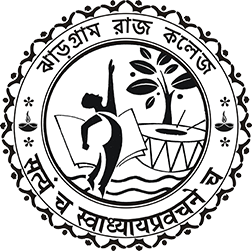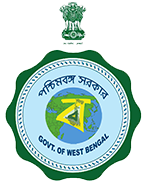
Estd.: 1949
A affiliated College under Vidyasagar University
Recognized by UGC under 2f and 12 B


Govt. Of West Bengal
 |
JHARGRAM RAJ COLLEGE Estd.: 1949 A affiliated College under Vidyasagar University Recognized by UGC under 2f and 12 B |
 |
 Govt. Of West Bengal |
The newly formed district, Jhargram is part of the area known as Jangalmahal, designated by the British. The primitive residents or Adivasis or the sons of the soil living in Jhargram district areas are mainly tribal communities of Lodha, Sabar, Kora, Munda, Mahali, Kheria and Santal, each of them is culturally different from the others. All the tribes had a rich culture of various activities: puja, parbon, rituals, songs and dances: Chuang, Chang, Chou, Dangrey, Jhumur, Panta, Ranpa, Saharul, Tusu, Bhadu and so on. Apart from popular Bengali festivals like Durga puja, Dol Jatra, Rath Jatra, Kali Puja, and Saraswati puja - these tribes mainly focus on Pujas related to woods and trees in the form of ‘Ed’ Puja and ‘Karam Puja’. They worship the roots of trees, which is locally known as “Than” and offer their certain ritual rites. However, with the advent of modernization things are changing and the local culture seems to lose its originality and some are even at the verge of extinction. Jhargram Raj College, situated at the heart of the district Jhargram, was established in 1949 by the Rajas of Jhargram. Though initially started as an Agricultural College, it took the status of Degree College enlightening a large group of learners in various disciplines. Along with general categories, students coming from these tribes of local areas are also part of our student fraternity. A certain percentage of the total seats of the students are reserved for ST categories as per admission guidelines. The College is therefore a forum where the adivasi (tribal) culture is being assimilated with other cultures as both students and teachers from other cultures and districts are also part of the teacher-student community. The College Forum felt the urge to know the local culture in detail and showed an interest in preserving it as most of the culture and practices by the sons of the soil are becoming extinct with the death of the older generation. In November 2021, a museum “Subrata Mukhopadhyay Lokosanskriti Sangrohosala” was inaugurated in the college. Gradually it became a room for preserving and interacting with the culture of the local communities and also assisting the academic interests of students studying Lokosanskriti (Folk-Culture) and Ethno-Botany. |
Reach us: |